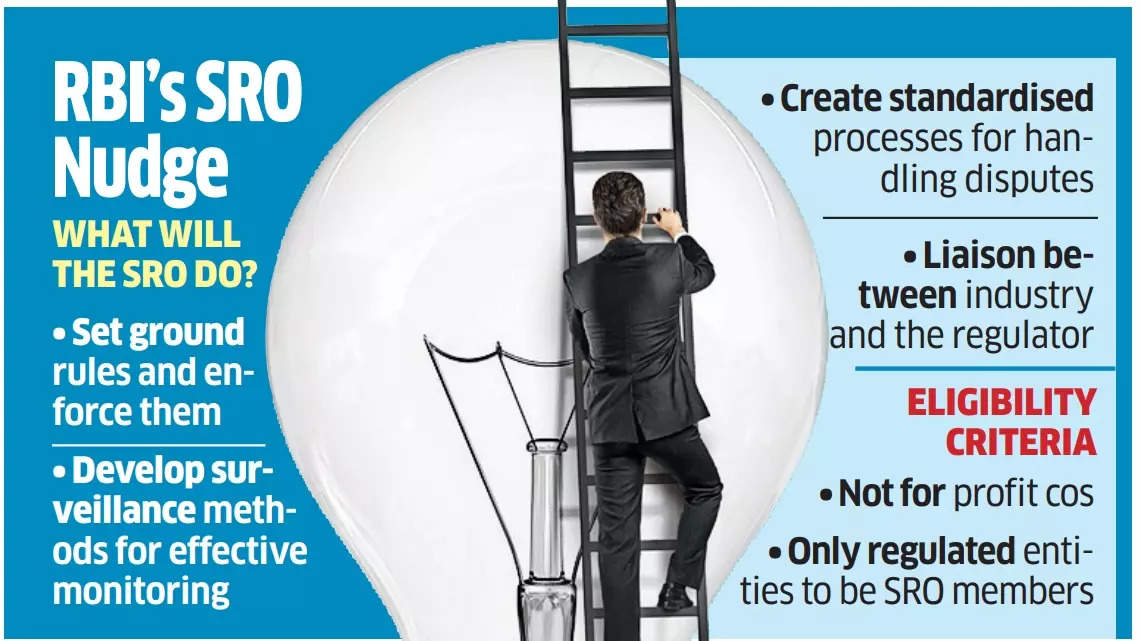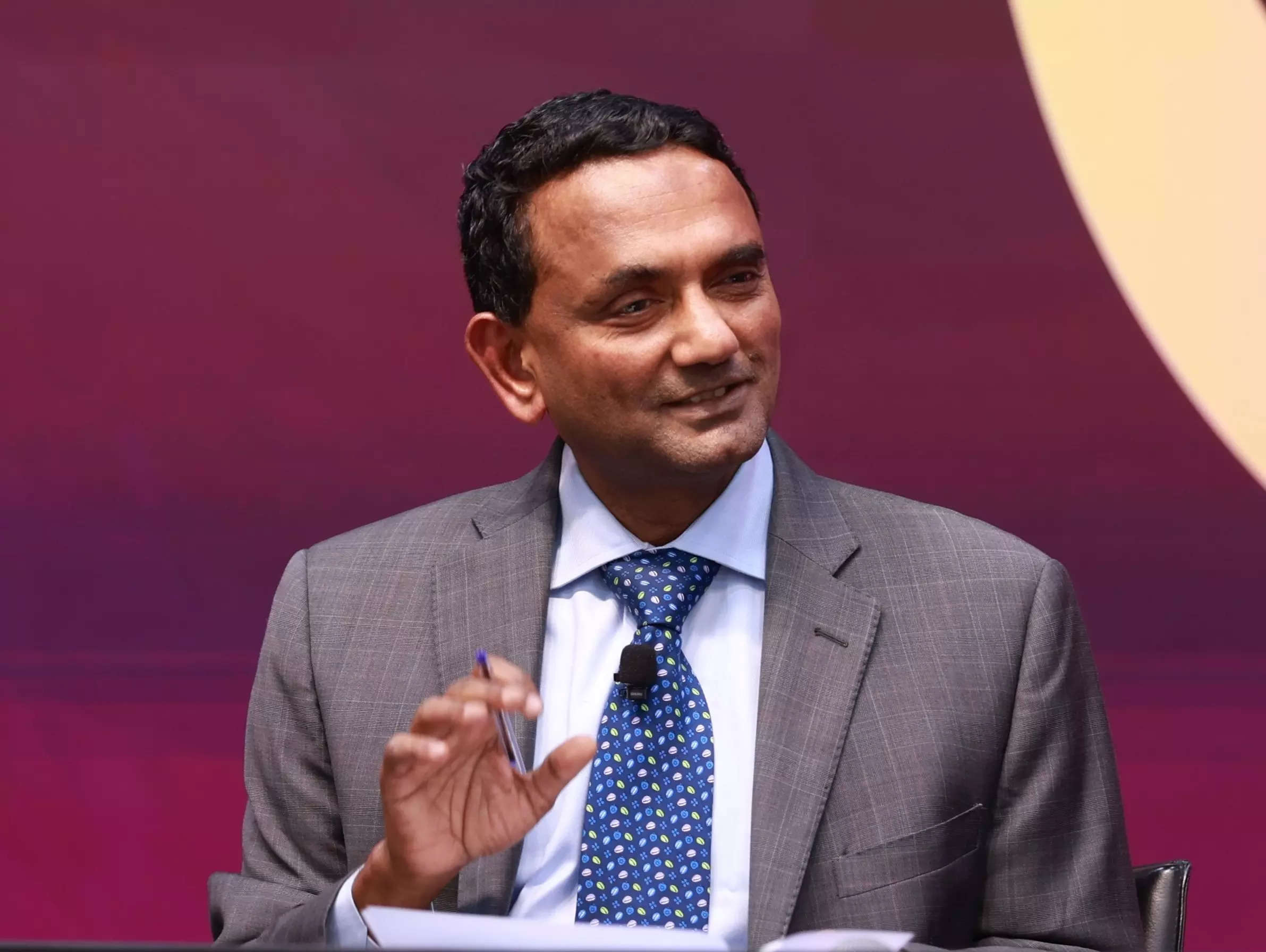Fintechs struggle to come together for self-regulation; epharmacies, govt officials hold talks over new rules
Also in this letter:
■ TCS’ Krithivasan to focus on customers, stem attrition
■ HCLTech Q4 net profit rises; FY23 hiring dips
■ Nod to non-profit’s regulatory body for fact-checking
Fintechs struggle to come together for self-regulation after RBI’s diktat

Hi, this is Pratik Bhakta in Bengaluru. Today, my colleague Tarush and I have a story on the country’s central bank asking the fintech industry to form an SRO (self-regulatory organization) to monitor itself. But with no consensus among industry players on the SRO issue, not much has moved on this front since the idea was mooted a month ago.
What’s driving the news? The Payments Council of India (PCI), the industry body for payments companies, had put itself up to become the SRO for the fintech sector. However, sources tell us that the central bank hasn’t taken PCI’s application forward. Other groupings like the Confederation of ATM Industry (CATMI) have also shown interest to take on the role, but nothing has been finalised yet.
What will the SRO do?
- Set ground rules and enforce them on members
- Develop surveillance methods for effective monitoring
- Create standardised processes for handling disputes
- Liaison between the industry and the regulator

Why does this matter? The Indian digital payments industry is growing quickly but the central bank has found that young companies have often bypassed stringent regulatory requirements. To ensure the industry can adopt the best-common approach towards sustainable growth, the role of a self-regulatory body will be crucial, as per RBI’s thinking.
The bottom line: By nudging the industry towards an SRO, the RBI is telling these players to manage their affairs through self-imposed rules. But it’s been tough for the participants to come together and form a single SRO.
Epharmacies, health ministry officials hold talks over new sector regulations

Earlier this week, top officials from epharmacies like Tata-owned 1mg, PharmEasy, Flipkart, and Amazon met health ministry officials in Goa and discussed potential new regulations for the sector. People who attended the meeting described to us what the discussions looked like.
What’s happening? The government has asked epharmacies to share a formal presentation on the benefits of such platforms, their compliance status, and the challenges the industry faces amid the high demand for online medicine. This, sources said, is part of the consultation process before bringing any new regulation.
What’s next? Digital Health Platforms (DHP), which counts 1mg and PharmEasy as its key members, will prepare a formal presentation before a potential meeting with the health minister Mansukh Mandaviya next month. The DHP is also looking to play a more active role in industry consultations going forward, a source said. “We are in the process of adding more members now, including Flipkart and Amazon India.”

Why does it matter: These discussions hold significance as they mark the coming together of the government with online pharmacy players after several failed attempts by the latter to put across their views on regulations.
Quick recap: On February 8, the Central Drugs Standard Control Organisation (CDSCO) sent show-cause notices to 20 epharmacies, including Tata 1mg, Amazon, Flipkart, Reliance Retail-owned NetMeds, MediBuddy, Practo and Apollo, over the online sale of drugs in an alleged violation of rules. Following this, companies reached out to the health ministry through industry associations to explain their viewpoint.
ET Ecommerce Index
We’ve launched three indices – ET Ecommerce, ET Ecommerce Profitable, and ET Ecommerce Non-Profitable – to track the performance of recently listed tech firms. Here’s how they’ve fared so far.
Centre approves non-profit’s regulatory body for fact-checking

The government has given a go-ahead to the non-profit organisation Misinformation Combat Alliance (MCA) to set up a self-regulatory organisation (SRO) for overseeing fact-checkers. They will monitor non-government-related news. MCA is an alliance of media companies aimed at combating misinformation and building tools to aid fact-checking.
Next steps: According to sources, MCA is expected to write to the Ministry of Electronics and Information Technology (MeitY), and provide comprehensive information, including the proposed timeline for the formation of the SRO, the steps for establishing the body, and the structure of its governing council. In a second letter, MCA is expected to seek an upper limit of 120 days for the formation of the SRO.
Quick catch-up: Earlier this month, MCA president Bharat Gupta, in a letter of intent to MoS IT Rajeev Chandrasekhar, proposed the formation of an Indian SRO supported by internet and social media intermediaries, which would serve as one of the nodal bodies for Indian fact-checkers.
This was after the IT ministry turned down the industry’s request to continue using fact-checkers with international certifications such as those of the International Fact-Checking Network (IFCN).
Also read | Technology firms to support non-profit forming SRO to vet fact-checkers
TCS CEO-designate K Krithivasan likely to focus on customers, stem attrition

TCS CEO-designate K Krithivasan has one task on the top of his things-to-do list as he takes charge of the country’s largest IT company on June 1 — focus on the customers and bring down attrition amid a challenging global business environment.
On the road: The CEO may spend most of the next six months on the road to help himself execute the customer-centricity task set by the TCS board.
“Krithivasan will first hit the road for most of the year to get a first-hand interaction of what the customer wants in a dynamic market situation,” sources told us. “That will sharpen his growth strategy to make TCS ready for forthcoming challenges and Gopinathan is helping with the transition.”
Also read | TCS Q4 Results: Profit jumps 15% YoY to Rs 11,392 crore; dividend declared at Rs 24/share
Tough task at hand: Krithivasan has a tough task in the coming months as the management commentary on near-term demand was among its weakest in recent history, excluding the initial months of the pandemic. The IT company sounded a cautious note about the demand environment while announcing its annual and fourth-quarter results last week, citing uncertainty in the North American and BFSI market.
Tweet of the day
HCLTech Q4 net profit rises 11% but FY23 hiring sees major dip

India’s third-largest IT company HCLTech reported a net profit rise of 10.8% in Q4FY23 but a sequential fall of 2.8%. It gave a tepid revenue forecast for FY24 amid a challenging macro-environment where customers will cut discretionary spending.
Financial highlights: Net profit for the March-ended quarter stood at Rs 3,983 crore compared with Rs 3,594 crore a year ago. Revenue came in at Rs 22,606 crore, up 17.7% year-on-year. An ET poll of analysts had pegged net profit at Rs 3,883 crore, up 8%, on revenue of Rs 26,710 crore, a rise of 18%.

Annual guidance trimmed: HCLTech expects a 6-8% annual revenue growth in constant currency for FY24, half of the 13.7% growth rate clocked in the current fiscal.
Fall in headcount: For the full year, HCLTech’s net hiring number stood at 17,067, down 57% from the 39,900 employees it hired for the full year in FY22. However, it saw an increase in headcount by hiring 3,674 employees on a net basis during Q3FY23, taking the overall headcount to 225,944. It had hired 2,945 candidates in the preceding quarter.
Other Top Stories By Out Reporters

Neo-banking startup Open lays off 47, Koo fires 30% staff: Neo-banking platform Open said on Thursday it cut 47 jobs to optimise its operations, in the latest of layoffs in the Indian startup sector. Also, founders of the fintech platform have taken a 50% pay cut, as the company aligns itself to profitability goals. Meanwhile, Twitter’s local rival Koo has fired almost a third of its employees in recent months as it struggles with losses and an inability to raise funds.
Rentomojo informs customers about cyber attack: Furniture and appliance rental startup Rentomojo has told its customers that hackers gained access to one of its databases, compromising some personal information of its users. However, founder Geetansh Bamania said there would be no impact on any financial information.
Global Picks We Are Reading
■ The People Who Still Love Renting DVDs From Netflix (Wired)
■ How Indians are watching Succession after HBO ditched Disney (Rest of World)
■ China’s EV Makers Outshine Global Rivals, but a Rocky Road Lies Ahead (WSJ)
For all the latest Technology News Click Here

